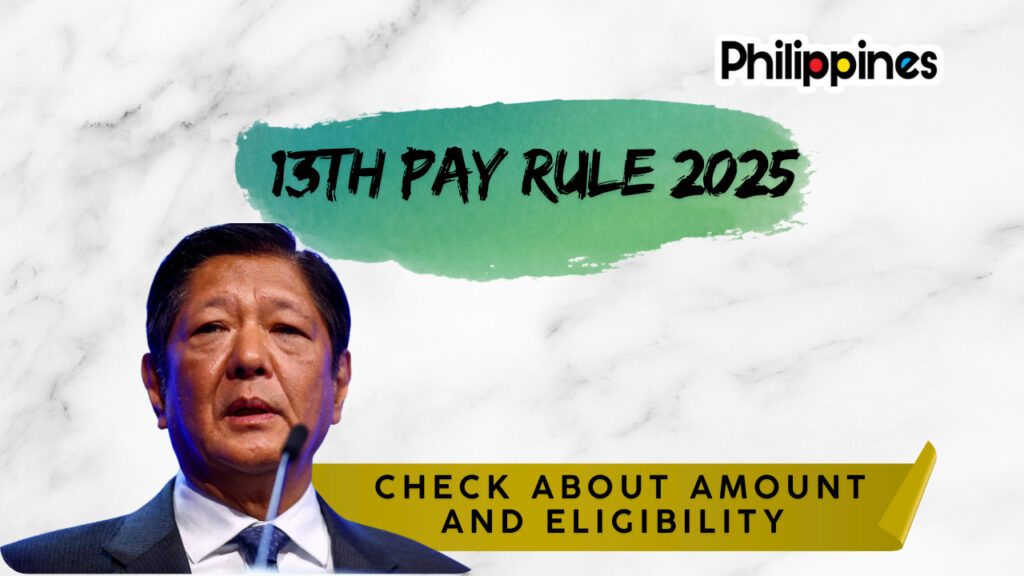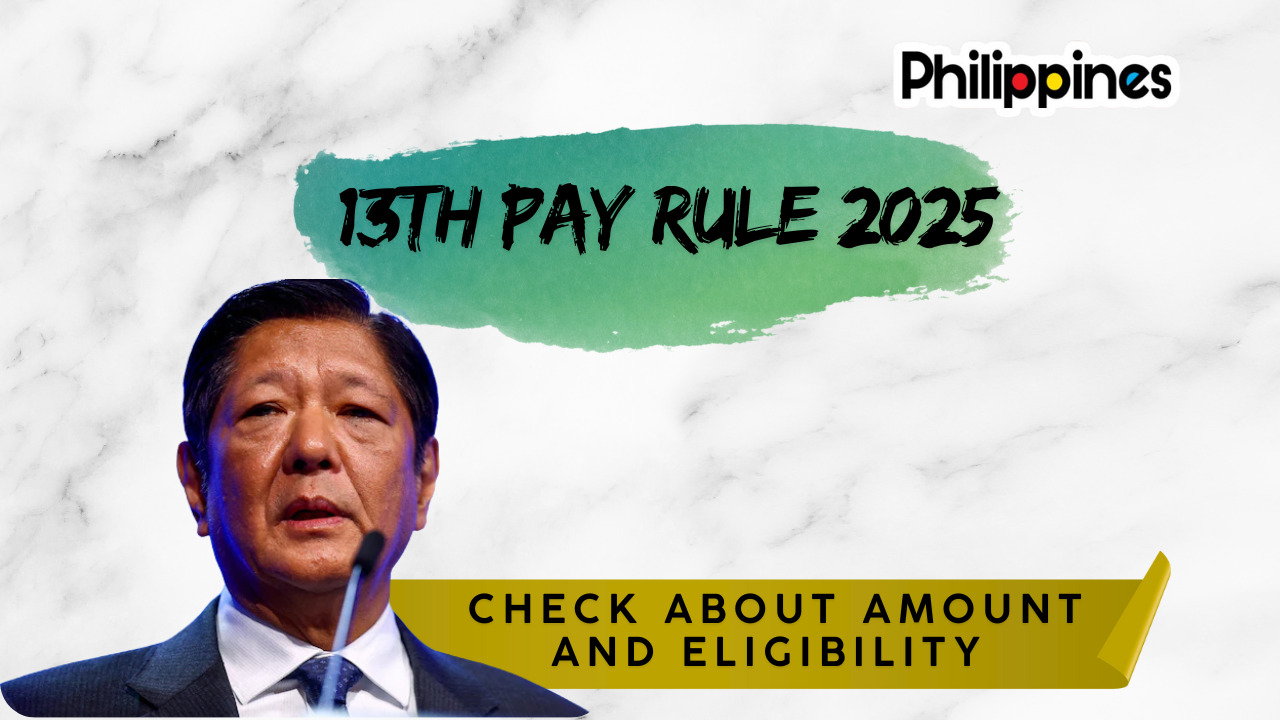Philippine 13th Pay Rule 2025: As the year draws to a close, Filipino employees eagerly anticipate the 13th Month Pay, a statutory benefit that has become a cherished tradition in the Philippines. Instituted by Presidential Decree No. 851 in 1975, this annual bonus aims to provide financial relief to workers,
especially during the festive Christmas season. In this blog, we delve into the specifics of the Philippine 13th Month Pay for 2025, covering its rules, eligibility criteria, payout dates, tax implications, and more.
Philippine 13th Pay Rule 2025-Overview
| Article on | Philippine 13th Pay Rule 2025:Check Rules, Eligibility, Payout Date |
| What is it? | Annual bonus equal to 1/12 of basic salary |
| Eligibility | Rank-and-file employees with ≥1 month service |
| Payout Date | On or before December 24, 2025 |
| Tax | Exempt up to ₱90,000; excess is taxable |
| Pro-rated Pay | Yes, if worked less than a full year |
What Is the 13th Month Pay?
The 13th Month Pay is a mandatory benefit that employers in the private sector must provide to their rank-and-file employees. It is calculated as one-twelfth (1/12) of an employee’s total basic salary earned within a calendar year. This benefit is distinct from other bonuses or allowances and is intended to help employees manage their expenses during the holiday season.

Eligibility Criteria for 2025
To qualify for the 13th Month Pay in 2025, employees must meet the following conditions:
- Rank-and-file status: Only rank-and-file employees are eligible; managerial employees are excluded.
- Minimum service requirement: Employees must have rendered at least one month of service during the calendar year.
- Employment status: Both regular and contractual employees are entitled to the benefit, provided they meet the service requirement.
Payout Dates and Compliance
Employers are legally required to release the 13th Month Pay on or before December 24 each year. While some companies may opt to distribute the amount earlier, the December 24 deadline is the official cutoff. Employers must also report their compliance to the Department of Labor and Employment (DOLE) by January 15 of the following year. Failure to comply with these regulations can result in administrative penalties.
“The 13th Month Pay isn’t just a bonus—it’s a year-end reward for dedication, a little extra comfort for families, and a reminder that hard work matters.”
Tax Implications
As of 2025, the 13th Month Pay is tax-exempt up to a cumulative total of ₱90,000. This means that if an employee’s combined bonuses, including the 13th Month Pay, do not exceed this threshold, they are not subject to income tax. However, any amount above ₱90,000 is subject to the prevailing tax rates.
Special Cases and Exemptions
While the 13th Month Pay law is comprehensive, there are certain nuances to consider:
- Multiple employers: Employees working for more than one employer are entitled to a 13th Month Pay from each employer, provided they meet the eligibility criteria with each.
- Employees on maternity leave: The period of maternity leave is considered as time worked for the purpose of calculating the 13th Month Pay.
- Employees on probation: Probationary employees who have rendered at least one month of service are entitled to the benefit.
- Employees on leave: Employees on leave with pay are still entitled to the 13th Month Pay, as the leave period is considered as time worked.
Reporting and Documentation
Employers are mandated to submit a compliance report to the DOLE, detailing the following:
- Name and address of the establishment
- Total number of employees
- Number of employees who received the 13th Month Pay
- Amount granted per employee
- Total amount of benefits granted
Penalties for Non-Compliance
Employers who fail to comply with the 13th Month Pay law may face administrative penalties, including fines and sanctions. In severe cases, the DOLE may recommend the suspension or cancellation of the employer’s business permits or licenses until the 13th Month Pay is duly paid.
Final Thoughts
The Philippine 13th Month Pay is more than just a statutory requirement; it is a vital component of the country’s labor laws designed to promote the welfare of workers. For 2025, the rules and guidelines remain consistent, ensuring that eligible employees receive this benefit in a timely manner. Employers must adhere to the stipulated regulations to avoid legal repercussions and to uphold their commitment to employee welfare.
FAQs for Philippine 13th Pay Rule 2025
What is the 13th Month Pay?
It is a mandatory annual benefit equivalent to 1/12 of an employee’s total basic salary for the year.
Who is eligible?
All rank-and-file employees, including regular and contractual, who have worked at least one month during the year.
Are managerial employees entitled?
No, only rank-and-file employees are eligible.
When should it be paid?
Employers must release it on or before December 24, 2025.
Is it taxable?
It is tax-exempt up to ₱90,000; any excess is subject to income tax.






